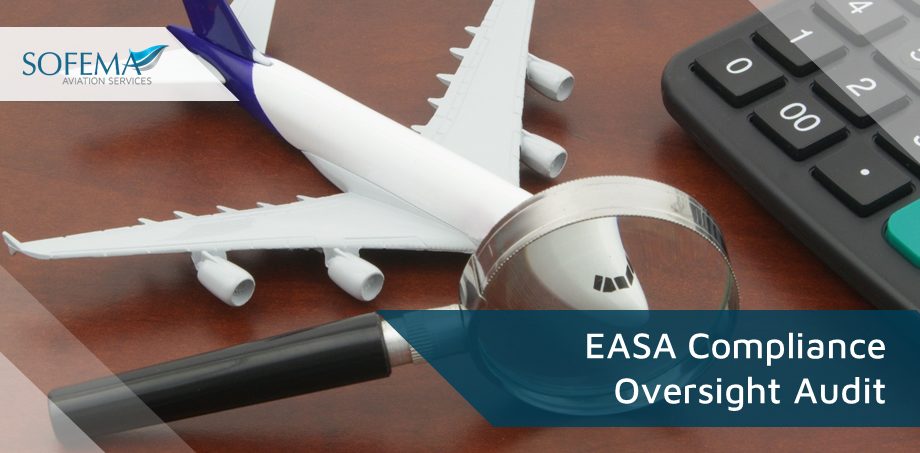Sofema Aviation Services (SAS) www.sassofia.com considers the key features of an EASA Compliant independent compliance oversight audit.
Introduction
An oversight audit of an aerodrome compliance auditing system is a comprehensive examination of the auditing process and procedures ensuring the compliance of an EASA Compliant Domain Approval with relevant regulations and standards.
This audit focuses on evaluating the effectiveness, integrity, and efficiency of the auditing system itself and should ensure that the auditing system maintains independence and impartiality throughout the audit process. Auditors should not have any vested interest in the audited aerodrome.
In summary, an effective EASA Compliance audit system should be designed to address these potential weaknesses and continuously adapt to evolving challenges in aviation safety and security. Regular review and improvement of audit methodologies and practices are essential to mitigate these exposures.
Key Audit Checkpoints
- Review all relevant documents related to the organization’s compliance auditing system.
o This will include all audit process and procedures manuals, checklists, procedures, reports, and records.
- Evaluation of the auditing procedures typically involves reviewing how audits are planned, conducted, reported and followed up.
o Ensure that audits are systematic, risk-based, and comprehensive.
- Assess the competency of the audit staff, including their qualifications, training, and experience.
o Verify that auditors have the necessary skills and knowledge to perform their duties effectively.
- Examine the quality and content of audit reports. Ensure that they are accurate, complete, and issued in a timely manner.
o Review how audit findings and recommendations are documented and tracked.
- Assess how the organization follows up on audit findings and recommendations. Verify that corrective actions are implemented within specified timelines.
- Evaluate the process for monitoring the effectiveness of the auditing system and for making continuous improvements based on lessons learned from audits.
- Examine How audit results are communicated to relevant stakeholders, including the business stakeholders, regulatory authorities, and other concerned parties.
o Validate transparency in reporting.
- Review the management of sensitive and confidential information obtained during audits is appropriately protected and handled in accordance with data protection regulations.
- Ensure audit records are retained for the required period and are easily accessible for both regulatory oversight and historical reference.
- Determine the auditing system adheres to EASA auditing standards and best practices.
- Review the mechanisms for receiving feedback from the audited organizations’, auditors, and other stakeholders to improve the audit process.
Potential Areas of Exposure or Shortfall During Aerodrome Compliance Oversight Audit
EASA (European Union Aviation Safety Agency) Compliance audit system is designed to ensure that all EASA Compliant organizations’ within the EU and holding Third Country Approval fully comply with aviation standards including safety and security regulations.
- However, like any regulatory system, there can be potential weaknesses and issues that may arise.
- Resource Constraints
o Limited resources, including auditors and time, can result in insufficient coverage or depth of audits.
o Critical non-compliance issues may go unnoticed due to resource limitations.
- Auditor Bias, whether conscious or unconscious, can affect the objectivity of audits.
o Biased audits may lead to inaccurate assessments of compliance levels.
- Non-compliance due to ignorance or misunderstanding of requirements.
- Incomplete or inaccurate record-keeping
- Poor communication between the compliance department and the auditees business area
- Reduced Effectiveness of audits due to the auditee being well-prepared for specific scenarios.
- Inadequate protection of sensitive audit data.
- Lack of Continual Improvement
o Failure to track and address recurring compliance issues.
- Persistent safety or security risks due to unaddressed problems.
Next Steps
Follow this link to our Library to find & Download related documents for Free
Please see www.sassofia.com www.sofemaonline.com and for comments or questions please email team@sassofia.com
Tags:
aviation safety, Aerodrome, EASA compliance, SAS blogs, Record-keeping, Compliance Auditing System, Library, Aerodrome Compliance, Oversight Audit, audit staff, Domain Approval, Third Country Approval, auditees business area, audit reports





